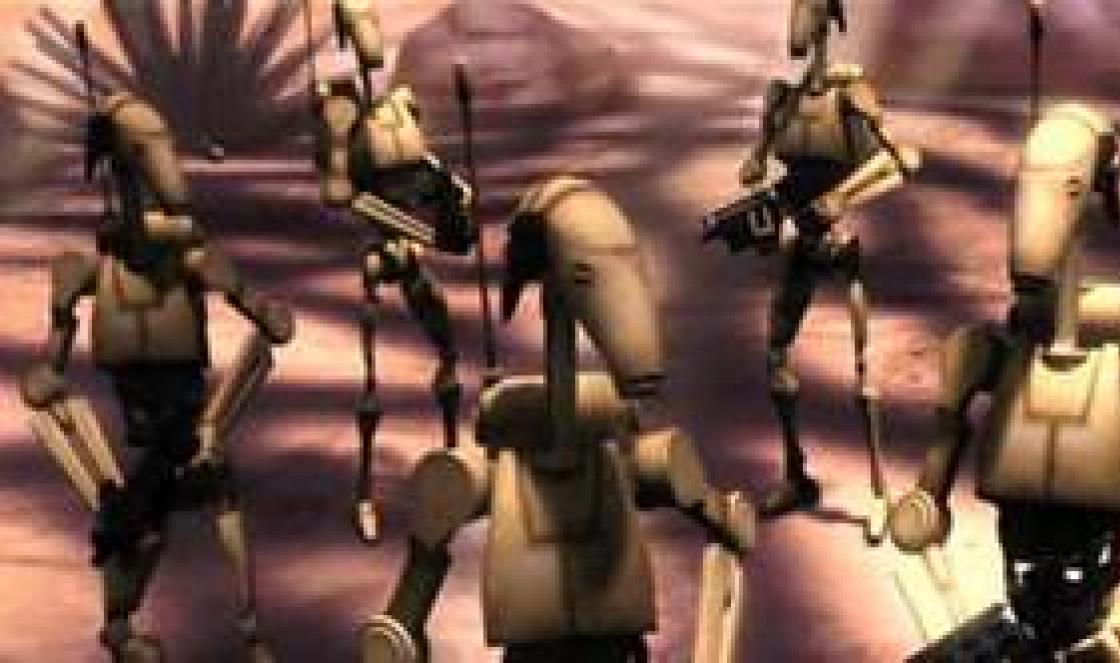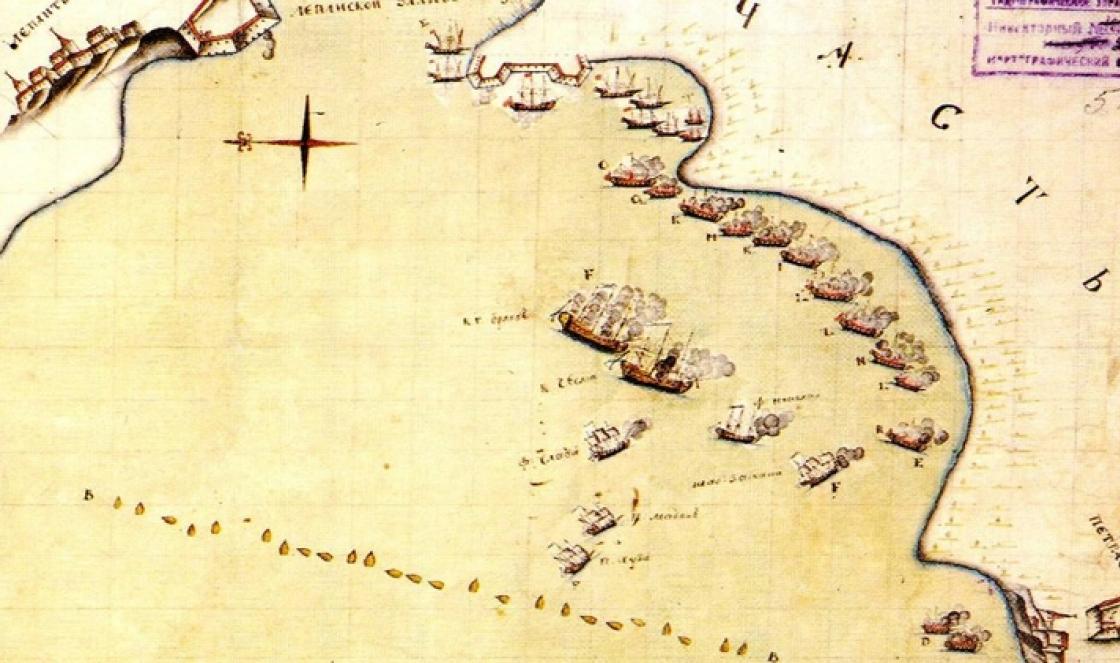When points are everything. The unified state exam for school graduates has ended. The results are already known in all disciplines. What, in the opinion of yesterday's students, is the most difficult subject, which is the most controversial and why?
The most popular elective subject, which was taken by about four thousand Transbaikal schoolchildren, was social science, followed by history, physics, biology and chemistry. But foreign languages have traditionally chosen units. The graduates unanimously named physics as the most difficult discipline.
Dmitry Borodkin: "In fact, I prepared very well and when I came to the exam the assignments were completely different, which is very strange, because usually there are assignments for which you are preparing, but I solved the entire physics exam and expect a high result."
Maxim Fedorov: "I solved the first part in physics, and sometimes I got two or three mistakes there, in general it was good, the second part I solved two or three tasks instantly, but here, when I came to the exam, there in the first part of the task were difficult, and in the second, it seemed to me, in general, some kind of Olympiad.
And graduates who graduated from school with excellent marks faced such difficulties, and physics was crammed with special diligence. But if everything is clear with exact disciplines - a specific question is the same answer, then with humanities: social science and literature, the criteria for "correctness" caused controversy among schoolchildren.
Alexander Krasnov: "Social science was difficult in itself, I myself thought that I didn’t pass, because everything was difficult, and I didn’t even read some questions, because I didn’t understand, we didn’t understand them at school, they weren’t on the Internet either that I watched, and somehow apparently lucky, I passed ".
Nevertheless, Alexander passed social studies well. As did Polina. The girl, among other things, chose in her USE time in literature, but not for admission, but simply to test your knowledge. The test passed with honor today - she is a medalist, but questions remained for the exam itself.
Polina Seneva: "IN The "From" part there are creative tasks, that is, how a person perceives this work, but he can see one way or another, and those who check are experts - they can see in their own way. That is why it happens that the scores are lower than expected."
The experts who checked the work of schoolchildren in literature this year explain that there are clear requirements for scoring the exam. Even though the humanities aren't always accurate, there can be no guess-work answers here either.
Valeria Sergeeva, chairman of the subject committee at the Unified State Examination in Literature: "An essay on literature is always a formulated problem, and any problematic issue requires a lot of answer options, at least two or three, so if you managed to convincingly answer the question, if you didn’t make factual mistakes and observed all the norms of literary speech, then you can count on a very high score.
The Unified State Examination in Russia is both a final exam at school and an entrance exam to a university and is conducted in 14 general education subjects. The Ministry of Education and Science has made changes to the procedure for conducting the state final certification. Read about what innovations await teachers and schoolchildren in 2016 in our regular Q&A section.
Cameras, "jammers" and sealed cabinets
Now all rooms that are not used for the exam, at least a day before the start of the test, must be locked and sealed. In the office where the exam will be held, there should not be any stands or posters, or they should be closed. In addition, the premises can be equipped with means of suppressing the communication signal, but so far this item is optional, and the commission makes a decision on it at its discretion.
Metal detectors and video cameras will be installed at all exam sites. Video recordings and collated examination papers will be kept until March 1 next year. Until that time, experts can double-check the answer forms. You will be able to see your work during the day when the results are announced to graduates in schools. An important feature is that when filing an appeal, points can not only be increased or saved, but also reduced.
How about chocolate?
This year, traditionally, schoolchildren must come with a passport, a black gel or capillary pen. Allowed for children with handicapped bring special technical means. You can also bring medicine with you. On the oral part of the exam in foreign languages, it is forbidden for the examiner to use drafts.

It can be noted that schoolchildren were allowed to take chocolate and water to the class for the exam. But first they will be checked for cheat sheets.
In all institutions where the unified state exam will be held, a doctor must be present to provide first aid to children who may become ill. But in this case, without fail, teachers must draw up an act that the student left the office for a good reason. The tasks themselves, if they came to the region in electronic form, are forbidden to print ahead of schedule. Teachers should do this right at the exam in the presence of students.
What else has changed?
Also an innovation was the change in the test part of the exams. In 2016, she disappeared from exams in history, social studies, geography and literature. Previously, it was removed from mathematics and the Russian language. Officials from the Ministry of Education and Science plan to continue to remove test parts from exams so that students do not answer at random, but knowing the correct answer.
The form of the exam in a foreign language will remain unchanged - the oral and written parts, but this year they will be taken on different days. Another innovation is the duration of exams in social science and chemistry. 30 minutes will be added to the first, 25 minutes to the second.
Rosobrnadzor also said that there would be no retakes of the exam in September. They decided to refuse them because of the high absenteeism in previous years, and those who came to retake, in most cases, could not retake the exam.
The importance of the Unified State Examination State Exam) is hard to overestimate. It is on him that the future of the applicant depends - whether he will go to a university or a college, or maybe he will not go anywhere at all. The USE evaluates the student's knowledge, which he received during 11 years of schooling. The rating scale is in points (from 1 to 100). The more points the examinee scores, the higher the chance to enter higher education. educational institution. Passing the exam is not an easy task. You need to prepare for it throughout the entire period of study at school.
The USE is constantly changing. Our Ministry of Education is trying to make this exam such that it assesses the level of knowledge in a particular subject as realistically as possible. According to experts, the exam in 2016, in its usual form, will be held for the last time. In subsequent years, the exam will be held in its usual form, as it was back in the days of the USSR. In this article I would like to tell you what changes will occur in the exam in 2016.
USE changes in 2016.
The Ministry of Education does not consider the changes in 2016 to be very strong and radical. However, many experts believe that the USE is gradually turning into a tool for entering a higher educational institution.
There was an initiative - to issue certificates without USE results all those who have studied at school for 11 years. The President of the Russian Federation has already been approached with such a proposal.
The most significant change in exams after 2016 is that text-based assignments will completely disappear. Assignments in humanitarian subjects will be mostly oral. This applies to literature, social science, history and other disciplines. In this case, the graduate will not be able to just guess the answer.
In 2016, there are also a lot of changes in the exam. This applies to the number of attempts to pass, compulsory subjects and minimum points. Let's look at all this in order.
Already in 2016, students will have to take a lot of things orally. Many subjects no longer include multiple choice questions. These subjects include: mathematics, Russian language, literature, foreign language.
The student, according to the results of the test for the ninth grade, can find out whether he will take the "profile" or "main" exam. Low academic performance will not allow you to choose the "advanced" option.
Compulsory subjects in 2016.
Mandatory USE subjects 2016 remain unchanged - this is the Russian language and mathematics. High school students this year, as in previous ones, will have to write an essay. However, now the essay is a kind of admission for passing other exams. Reviewers now give marks "Pass" and "Unsatisfactory". If the student could not write an essay the first time, he is given a second attempt. If the second attempt fails, then the opportunity to pass the exams is transferred to the next year.
The number of elective exams can be any. Here you should focus on what exams are required by the university in which you are going to enter.

Attempts to pass the exam in 2016.
In 2016, 3 attempts will be given to pass the Unified State Exam. During school year passes the exam and has the opportunity to retake it two more times. Please note that this only applies to compulsory subjects. The Ministry of Education also says that there will most likely be an opportunity to improve your grade, for example, from four to five.
Minimum points
Minimum points for the exam in many subjects increased. These changes should motivate students to better prepare for the exam.
- In Biology and Russian, you need to score at least 36 points to pass the exam.
- History and literature - 32 points.
- Mathematics 27 points.
- 40 points in computer science.
- 42 points in social studies.
- In foreign languages - 22 points.
The principle of building a schedule this year has changed a bit. As in previous years, the schedule for passing the exam in 2016 provides for the main dates for passing tests and a reserve period when Unified state exam those who, for a good reason, could not do it on the main dates, are fed up. At the same time, a fairly large proportion of "reservists" are usually schoolchildren who did not have time to pass the certification in the main terms due to the coincidence of exam dates.
However, the latter in 2016 will be less than usual: the schedulers analyzed the statistics and came to the conclusion that the social studies exam is very popular among graduates. Therefore, this subject was given a separate day in the schedule.
As a result, in USE schedule-2016 there are four pairs of “coincident” exam dates:
- physics and chemistry;
- history and informatics;
- geography and literature;
- biology and foreign language (written part).
Most of the "parallel" subjects belong to different profiles and are rarely required for admission at the same time (except perhaps physics and chemistry). It is expected that this innovation will help the majority of eleventh-graders to complete the exam epic by June 20 and come to the school graduation party already saying goodbye to textbooks.
Schedule of the early period for passing the exam in 2016
Far from all eleventh graders can take the exam in March-April - school course in most subjects, by March, it is considered not yet completed, and a good reason is needed to participate in the early period. The exception is subjects that are no longer taught in grade 11 (for example, geography, which is completed in grade 10) - they can be taken as part of early period all schoolchildren, and this can become in a good way"unloading" of the main examination period.
Among those who can apply for participation in the “spring wave” in other subjects are boys and girls who will take part in all-Russian and international competitions or competitions in June; Graduates evening schools who go to serve on conscription; as well as schoolchildren who will be in sanatoriums or other medical institutions at the beginning of the summer. They will be joined by those who will soon go to live and study in other countries. In addition, graduates of previous years can take the exam in March-April; students of technical schools and lyceums; school graduates from other countries.
The exam marathon will begin on March 21, the first in the USE-2016 schedule will be an exam in mathematics at the basic level.
The main stage of passing the exam-2016: exam schedule
Most of the eleventh-graders pass the exam in the main period. Compulsory for all graduates, as in the past year, are exams in the Russian language and mathematics (basic or profile level, if desired, an eleventh grader can take both options at once).
In order to be admitted to the exams, students need to get a "pass" by writing. His eleventh-graders wrote on December 2, and for those who did not cope with this task the first time, two days are provided for a retake - February 3 or May 4. There are not so many graduates who will have to write an essay again - according to statistics in different regions of Russia, the number of students who received a "failure" varies from 1 to 3%.
Schoolchildren who have chosen geography or literature as additional subjects will be the first to pass the USE-2016 - they will take them on May 27. From June 30 to June 6, the period for passing the mandatory USE, from 8 to 20, exams in other disciplines will be held. From the 20th to the 28th - reserve days, and for Russian and mathematics they are “dedicated” (June 27 and 28, respectively).
In addition, the USE-2016 schedule provides for a “single reserve day”, on which it will be possible to finish any of the subjects - June 30th.

Dates of the additional period of the Unified State Exam-2016
Students who have not passed the threshold in Russian or mathematics can now retake the exam without waiting for the next school year. In addition to them, those who missed the main deadlines or could not finish the work for good reasons will also be able to take the exam in September.
IN September deadlines Exams are held only in compulsory subjects:
- basic or specialized mathematics can be retaken on September 10;
- an additional exam in the Russian language will be held on September 17;
- September 24 will be the single reserve day of the “autumn wave”.
All autumn exams will be held on Saturdays. This can be regarded as a "trial balloon". Indeed, in the future it is planned to organize the passing of the Unified State Examination for "losers" and graduates of previous years throughout the academic year, while it is planned that the exams will be held on weekends.





